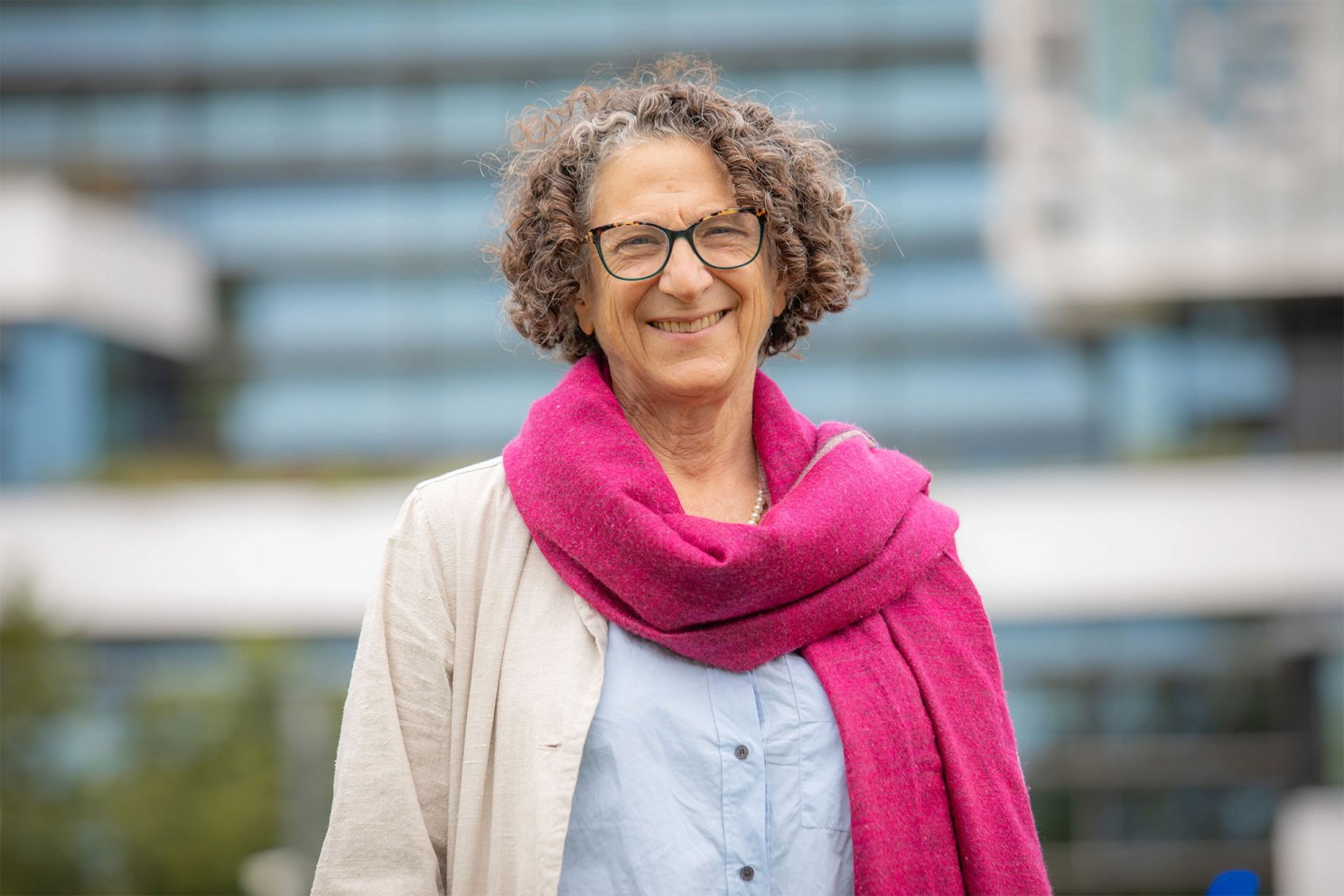Pioneer of modern data privacy Cynthia Dwork wins National Medal of Science

Cynthia Dwork, Gordon McKay Professor of Computer Science.
Eliza Grinnell/SEAS Communications
Apple phones analyze user data without revealing information about individuals. Google Maps shows how busy public places are without disclosing people’s locations. Researchers query vast troves of sensitive medical records to study disease patterns while protecting patient privacy.
Computer scientist Cynthia Dwork has had a hand in all of it.
Dwork, the Gordon McKay Professor of Computer Science at the Harvard John A. Paulson School of Engineering and Applied Sciences (SEAS), received the National Medal of Science for her renowned contributions to the science of cryptography, distributed computing, algorithmic fairness, and differential privacy — a set of mathematical rules that power many of the data privacy guarantees we take for granted today.
Dwork is among 14 recipients of this year’s highest national honor for exemplary leadership in science and technology.
She was grading the final exam for CS 1260 in December when she received the news.
“Learning about the honor was a lot more fun than grading the exam. I was thrilled!” she said.
Established by Congress in 1959 and administered by the National Science Foundation, the National Medal of Science is awarded to scientists and engineers who have made “outstanding contributions in the physical, biological, mathematical, engineering, or social and behavioral sciences, in service to the Nation,” according to the White House.
An affiliate faculty member at Harvard Law School and in the Department of Statistics, Dwork was cited for “visionary contributions to the field of computer science and secure public-key cryptography.” Her “innovative research, analyses, and discoveries on differential privacy, fairness in algorithms, and statistical validity in adaptive data analysis,” the citation continues, “help guide cutting-edge technologies across modern society and play a critical role in advancing the global public good.”
“I’m thrilled for Cynthia that her field-changing contributions to computer science and their impact on society are being recognized with one of the highest honors for leaders in science and technology,” said David C. Parkes, the John A. Paulson Dean.
Dwork is known for placing privacy-preserving data analysis on a mathematically rigorous foundation. Differential privacy, a strong privacy guarantee permitting sophisticated data analysis, is a cornerstone of that work. This mathematical technique she and colleagues first pioneered in the mid-2000s is now widely deployed in industry, including in every Apple device, and was the backbone of the Disclosure Avoidance System for the 2020 U.S. Census.
Dwork’s earlier innovations included modernizing cryptography to cope with the ungoverned interactions of the internet through the development of non-malleable cryptography. She has also provided a proof-of-concept for the post-quantum era with the first lattice-based public-key cryptosystem.
Dwork is a member of the National Academy of Sciences and the National Academy of Engineering, and is a fellow of the ACM, the American Academy of Arts and Sciences, and the American Philosophical Society. She is now among 37 Harvard faculty to have received the National Medal of Science. Only a handful of computer scientists have been so honored, the last being in 2007.




